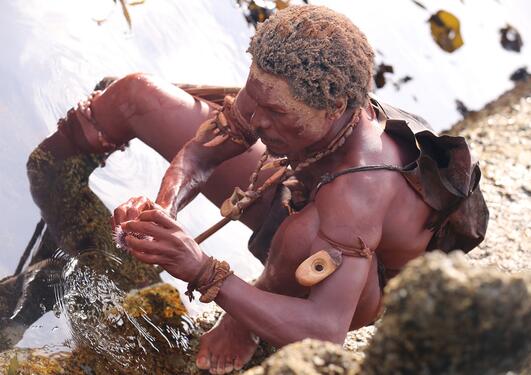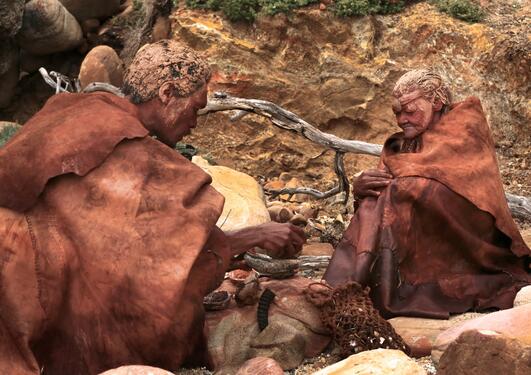SAPIENCE KEY RESEARCH QUESTIONS:
Investigating early humans
The interdisciplinary SapienCE team is carrying out macro- and micro-scale investigation of key Middle Stone Age archaeological sites. The team is looking for answers to questions that will bring us closer to an understanding of how we became modern humans like we are today.

OUR ANCESTORS: Christopher Henshilwood and Sarah Wurz out in the field looking for clues that can tell us more about who our ancestors were and how they lived their lives.
Photo:
Craig Foster
Main content
The primary objectives in our early Homo sapiens research is to address the following key research questions:
- When, why and how did humans first become behaviourally modern and how is this defined?
- Did cognitive changes accelerate behavioural variability?
- How were these groups of hunter gatherers socially organised?
- Was social cohesion enhanced by the adoption of symbolic material culture and did it lead to innovation?
- What cognitive skills had to be in place in order for other skills to develop?
- How adaptable were humans to environmental change and did climate impacts act as drivers for technological innovation and subsistence adaptations?
- Can we determine, from our planned genetic research, the relationship of these early H. sapiens to extant human populations?
RESEARCH AREAS
17.11.2020






